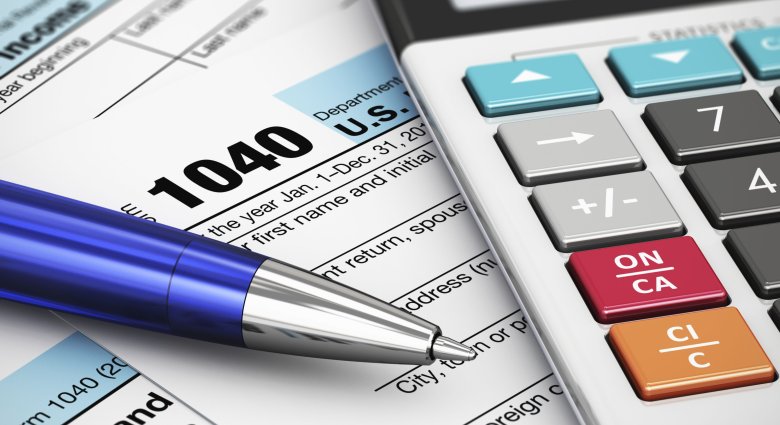
5 major tax changes ahead of us in 2016
 This year, many new regulations in Polish tax law will come into force and practically all the most important acts will be changed. - This year is exceptional not only in terms of the number of novelties, but also due to the fact that updated legislation has been adopted, which rarely happens and, in addition, completely new taxes are adopted. Everything seems to indicate that further important tax acts are yet to come. In 2016, the tax law may change really dynamically - says Michał Skibicki from WFY Group and indicates 5 most important changes that may come into force within the next 12 months.
This year, many new regulations in Polish tax law will come into force and practically all the most important acts will be changed. - This year is exceptional not only in terms of the number of novelties, but also due to the fact that updated legislation has been adopted, which rarely happens and, in addition, completely new taxes are adopted. Everything seems to indicate that further important tax acts are yet to come. In 2016, the tax law may change really dynamically - says Michał Skibicki from WFY Group and indicates 5 most important changes that may come into force within the next 12 months.
Bank tax
Although not all of the planned amendments directly concern individual taxpayers, unfortunately, most of them will mean certain financial burdens and increased restrictions for the average Pole. - Many of these changes will consequently translate into higher prices, resulting in reduced consumption and economic slowdown - says Michał Skibicki, tax advisor and Vice President of the Management Board of WFY Group. The unfavourable reaction of the market to the introduced amendments to the regulations perfectly shows the effects of the bank tax immediately adopted at the beginning of the new year. The law on the subject was signed by the President on 15 January 2016 and published in the Journal of Laws on the same day. - As a result, the bank tax of 0.44% on surplus assets specified in the regulations will be introduced as of 1 February. Unfortunately, the effects of this amendment are already being felt now, because banks - expecting such a change - started to increase the interest rates on new loans on a massive scale from the beginning of the year," notes Michał Skibicki from WFY Group.
Trade tax
Another change, which has been announced for a long time, is also the tax on large-area stores. - However, this matter is not so clear. It is already known that it will not apply only to hypermarkets. After the government's recent consultations with entrepreneurs, it is said that the new tax will not be based on the criterion of shop area, as it was in the original project, but will be calculated on the basis of the chain's turnover - says Michał Skibicki from WFY Group. In addition, the tax is also to be of a general nature. In practice, this means that it will be mandatory for the entire industry, and thus also for small housing estate stores, as well as online shops. - The taxation of e-commerce has been mentioned before. The government worked on a draft of such a bill in parallel with the regulations on the tax on large-format stores. At present, however, it seems that the drafts of these two acts will be merged into one common turnover tax - adds Michał Skibicki.
VAT
Changes in VAT will certainly be of the greatest importance for entrepreneurs in 2016. They are planned for October 2015 and the draft prepared at that time has 441 articles. Today, however, it is impossible to predict which of the announced provisions will finally come into force. - These include, for example, the generalisation of the principle of joint and several liability with the introduction of the so-called split payment to prevent abuse of deductions, the taxation of expected tax benefits, such as rebates, and new sanctions for irregularities in VAT settlements. According to the draft, the tax authority will then be able to apply even a double rate of VAT, i.e. 46%. Certainly, at least some of these novelties will come into force, which, unfortunately, will result in a tightening of the fiscal policy - predicts tax advisor Michał Skibicki. - However, among these restrictions one can also find a tiny glimpse of optimism. These include the announced reduction of the standard VAT rate to 22% at the end of 2016. - adds.
Tax evasion clause
The question remains open as to when and in what form the government will introduce the tax circumvention clause, which is already being discussed from 2014 and confirmed by the Minister of Finance in December 2015. - It is a change in the tax ordinance which consists in adding a provision allowing the tax authorities to undermine transactions which give entrepreneurs significant tax savings as a result of their execution - explains Michał Skibicki from WFY Group. On the one hand, such assumptions preclude the liberalisation of the law in this area and the clause on the settlement of doubts in favour of the taxpayer, which was introduced in January this year. In addition, in the case of the announced change, not only the final form of the regulation, but also the short vacatio legis are controversial. - Such amendments introduced during the tax year may be subject to unconstitutionality charges. A taxpayer should be sure of an unambiguous interpretation of his liabilities throughout the whole tax year," adds Skibicki.
Tax-free amount
Finally, it is worth emphasising the change - it would seem - in the obvious way announced for 2016, which, unfortunately, has a real time lag in terms of implementation. This is a promised increase in the tax-free amount to PLN 8,000. - The need for such an amendment is clear from the October judgment, in which the Constitutional Tribunal ruled that the current amount is contrary to the Constitution, because it is too low and must be increased so that the poorest do not pay tax - says Michał Skibicki from WFY Group. Unfortunately, according to the new Prime Minister's exposé, everything points to the fact that the chance of adopting the announced change in 2016 is low.
See more

Tax policy in European Union

Tax advice - why should I use it?

























